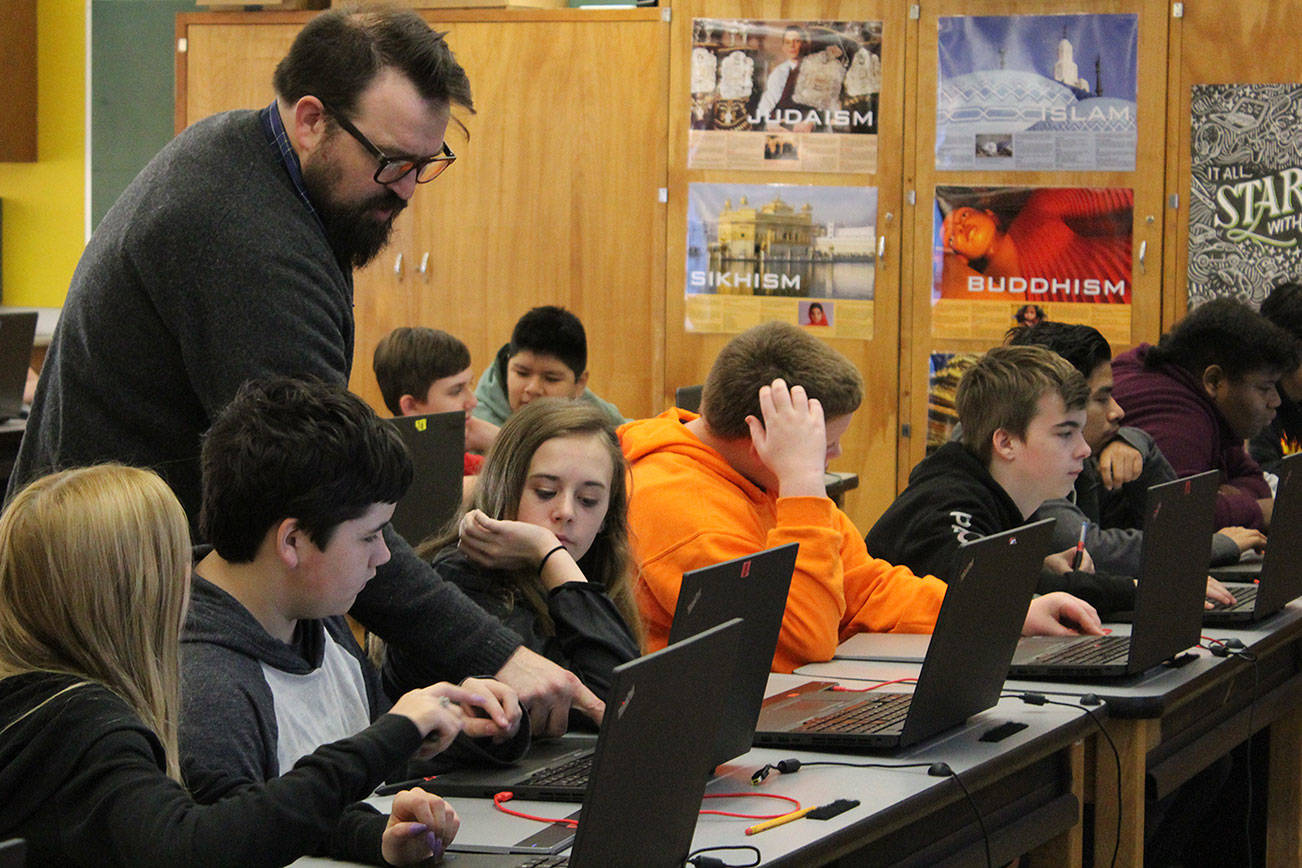MARYSVILLE – Let’s start with the good news.
Your tax bill for the Marysville School District is going to drop.
The bad news is taxes for schools will go up statewide.
It’s called a “levy swap,” Mike Sullivan, MSD finance director, told the City Council Monday night.
Voters should start receiving ballots in the mail anytime now. The MSD is asking voters Feb. 13 to renew both its maintenance and operations levy, and also its technology levy, which this year includes money for capital projects. Both take a 50 percent majority to pass.
These are replacement levies “and with local levy dollars being the second-largest funding source for the Marysville School District’s overall budget, it’s critical this support is maintained,” district spokeswoman Emily Wicks said.
Sullivan said it’s not true that the state has fully funded education. For example, the state is only providing funding for a counselor for half a day. “They just don’t need help in the morning,” Sullivan said of students.
So, the district has to pay the other half of the salary. Those “enrichment” funds come from the M&O levy.
As another example, Sullivan said the state only funds for a certain number of special education students. “We have eighty students we are not getting funding for,” he added.
His third example has to do with transportation. The state says kids can walk up to a mile to catch a school bus. Sullivan said there are some neighborhoods where that wouldn’t be a good idea. So, “for the safety of the students,” buses drive into those areas.
Sports, music and art also are called “enrichment” by the state. To have any of those, the M&O levy has to pass. The only other option would be pay to play.
“We do not charge now and don’t want to in the future,” he said.
Wicks emphasized that the levies ensure access to technology is a basic right for students, and that schools are able to employ the nurses, counselors, librarians and support staff needed to reinforce the health and safety of students. The levies also fund the most-critical facility retrofits and replacement needed over the next five years, and maintain funding for programs for students with special needs, the arts, music, athletics and extra-curricular programs.
Replacement Educational Programs and Operations Levy
Thanks to valuation increases and new construction, the M@O levy will actually drop 70 cents from $3.88 to $2.97 per $1,000 in 2019. That would cost a taxpayer $891 a year for a $300,000 home, a savings of $210. That levy would bring in $26.5 million each year from 2019-2022, down from almost $28 million now. However, acting superintendent Jason Thompson said the state will be increasing its taxes for schools 81 cents, from $1.89 to $2.70 per $1,000. It will redistribute that money to districts.
This levy helps pay for:
•Classroom teachers and instructional aides
•Nurses, counselors, librarians and support staff
•Programs for students with special needs
•Student transportation
•Arts, music, athletics and extra-curricular programs
•Resources for addressing individual student-learning needs
•Health, safety and security of students.
Replacement Technology and Capital Projects Levy
The technology levy is being combined with capital projects in response to a survey after bond failure that says the community wants its existing schools to be better maintained. Thompson said this part of the levy needs to pass to pay for things like the new roof at Allen Creek Elementary and replacing the 43-year-old boiler at Marshall Elementary that caught fire and caused smoke damage to the school. For the capital projects levy would pay for:
•Roof and gutter replacements
•Fire system upgrades
•Door and hardware replacements
•Boiler replacements and heating improvements
•Electrical retrofits such as lighting, outlets and intercoms
•Siding replacements
For the technology part, the levy would pay for:
•Devices, apps and student and staff learning
•WiFi access at all buildings
•Access needed for learning
•Routers, power sources and wiring
•Additional security personnel
Cost for each is $12 million, so that entire levy is $24 million over four years. That amounts to 67 cents per $1,000 valuation in 2019. On a $300,000 home, that would be $201 a year, about $7.25 per month more than what is paid now just for technology. That rate will drop to 50 cents per $1,000 by 2022.
In total, the two levies amount to $3.64 per $1,000, 41 cents less than current levels, which is due in part to the new funding provided by the state. Combined the cost is $1,092 on a $300,000 home, down $123.
The district has 10,660 students with 46.5 percent of them on free or reduced lunch and 16.4 percent in special education. About 260 are homeless or transitional students. Seniors and disabled people can get tax exemptions. To see if you qualify, call the Snohomish County Assessor’s Office at 360-867-2200.
If you’d like someone from the district to talk to your organization about the levy, call Wicks at 360-965-0007 or email Emily_Wicks@msd25.org. Other questions call finance director Mike Sullivan at 360-965-0094 or email Mike_Sullivan@msd25.org.



